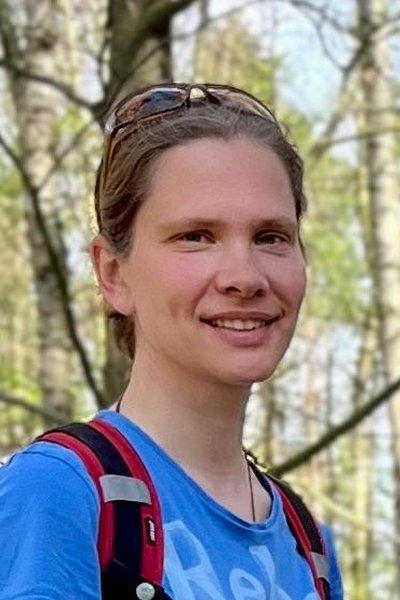Maria Pätzold
PhD candidate (associated)
Medieval-Latin and Neo-Latin Philologies

Research project
"Man behind man – Man and his parts in Rabanus Maurus (De rerum naturis, book 6)"
Consistent with the topic of our graduate college, studies on Rabanus Maurus (ca. 780–865 AD) always also have to deal with heteronomy, as his works are above all compilations – excerpt sets from previous authors or text collections. So it’s about understanding Rabanus’ compilation method – what does he depend on, what does he change or leave out and how and why by this a new, autonomous text is created?
In my investigation I will concentrate on the anthropological book ‘About man and his parts‘ from Rabanus’ encyclopedia De rerum naturis (‘About the nature of things’). It’s main pretext (i.e. its main template) is the encyclopedia Etymologiae from spanish bishop Isidore of Seville (ca. 569–636 AD), as Rabanus copies long passages from it. In this template there are two aspects of the view on man: first the scientific view that Isidore passes on from antiquity (likewise by means of compilation); second Isidore’s etymological view that has to be considered in regard to man and his parts.
Then there is the second important template for Rabanus: the works of the patristic-exegetic commentary tradition, which is about the allegorical interpretation of man and his parts (body parts, organs etc.), i.e. about the proper mystical Christian truth behind. So man behind man is not man anymore, but his parts stand for e.g. Christian virtues or diabolic temptations. Besides many Bible passages that substantiate this mystical-allegorical level of man, Rabanus quotes church fathers and late antique or early medieval Christian auctoritates, particularly Bible commentators.
My thesis entitled ‘Man behind man’ shall thus investigate how Rabanus Maurus combines Isidore of Seville’s antique scientific and etymological view on man with the Christian mystical-allegorical view of the patristic-exegetic sources – and why.
Curriculum Vitae
research associate in a project on bible editions (Codex Sangallensis 1395 Σ) with Professor Annette Weissenrieder at the Martin-Luther-Universität Halle
PhD position at the graduate college „The Autonomy of Heteronomous Texts in Antiquity and the Middle Ages“ (FSU Jena)
research assistant (University of Erfurt, FSU Jena, manuscript centre at the university library Leipzig)
postgraduate studies Collections-Based History of Knowledge and Culture (University of Erfurt) and Medieval Studies (FSU Jena)
care services „Puls der Zeit“ Berlin
evaluation of international university applications (uni-assist e.V. Berlin)
writing (novel, children’s book, short stories, poems) and various activities for making a living
times as undergraduate assistant at the Universities of Leipzig and Trier (Greek Philology, Byzantine studies)
studies in Greek Philology at the University of Leipzig (with German Studies and Musicology), at the University of St. Andrews (Scotland) and the University of Trier (with Papyrology und Latin); magister artium
studies in French Literature in Lorient and Nantes (France); intermediate diploma (DEUG de Lettres Modernes)
school time in Berlin and France; baccalauréat littéraire at Lycée Français de Berlin